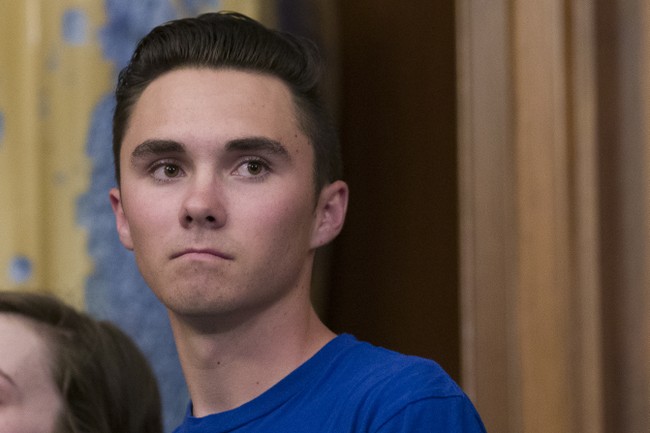Supreme Court Justice Sonia Sotomayor has drawn sharp criticism following a speech at the American Bar Association TIPS Conference, where she made remarks that some legal experts and observers argue reveal a partisan bias against President Trump’s administration.
The comments have reignited debates about judicial impartiality, with calls for Sotomayor to recuse herself from future cases involving the president.
During her address, Sotomayor urged lawyers to take an active role in challenging what she described as critical battles facing the legal system.
Trump’s Sovereign Wealth Fund: What Could It Mean For Your Money?
“If you’re not used to fighting, and losing battles, then don’t become a lawyer. Our job is to stand up for people who can’t do it themselves,” she said.
She continued, “And our job is to be the champion of lost causes. But right now, we can’t lose the battles we are facing. And we need trained and passionate and committed lawyers to fight this fight.”
Justice Sotomayor just told an ABA audience that “Our job is to stand up” and that “we can’t lose the battles we are facing.” Also: “We need trained and passionate and committed lawyers to fight this fight.”
That makes a mockery of any appearance of objectivity in cases… pic.twitter.com/fEGVQe70pi
— Carrie Severino (@JCNSeverino) May 9, 2025
This Could Be the Most Important Video Gun Owners Watch All Year
The repeated use of “we” in her speech raised concerns among some attendees and legal scholars, who interpreted it as a rallying cry for lawyers to oppose the Trump administration.
Sotomayor further stated, “For me, being here with you is an act of solidarity,” a comment that legal scholar Jonathan Turley described as a clear partisan reference to the ongoing legal challenges against Trump’s policies.
Turley noted that the justice appeared to be positioning herself as part of a constituency on the left, rather than maintaining the neutrality expected of a Supreme Court justice.
The New York Times reported that Sotomayor’s remarks were delivered “against the backdrop of immense stress on lawyers and the legal system from the Trump administration,” a connection that many found evident in her speech.
Activists and legal professionals aligned with Democratic causes praised her comments.
Marc Elias, a prominent Democratic activist and court-sanctioned lawyer, said, “She understands that while we must bring difficult cases and be willing to lose, we must always fight to win. And by lending her voice in ‘solidarity,’ she affirmed that it is ‘our time to stand up and be heard.’”
Other activists echoed this sentiment, noting that “Justice Sotomayor’s support for the aggressive pro-democracy movement is so important at this critical time.”
This is not the first instance where Sotomayor’s impartiality has been questioned.
In the past, she has encouraged law students to organize in support of abortion rights and has publicly criticized the Supreme Court’s handling of a case involving Trump’s presidential immunity.
These prior statements, combined with her recent speech, have led some to argue that she has crossed a line that warrants her recusal from cases involving the Trump administration.
The role of a Supreme Court justice is to remain above political fray, a principle symbolized by the blindfold worn by Lady Justice.
Critics argue that Sotomayor’s comments undermine this standard, especially at a time when the court’s legitimacy hinges on public trust in its ability to rule based on constitutional principles rather than political leanings.
Federal judges have faced similar scrutiny for issuing rulings that some view as attempts to obstruct Trump’s agenda, often on legally questionable grounds.
With the likelihood of more Trump-related cases reaching the Supreme Court, Sotomayor’s recent statements have intensified calls for her to step aside from such matters.
Her critics contend that her open alignment with activists opposing the president compromises her ability to serve as an impartial arbiter.
They argue that if Sotomayor values the integrity of the Supreme Court, she should voluntarily recuse herself from these cases to preserve the public’s faith in the judiciary.
The controversy surrounding Sotomayor’s speech highlights the ongoing tension between judicial independence and political activism, a debate that is likely to persist as the Supreme Court navigates cases tied to the Trump administration in the coming months.
Connect with Vetted Off-Duty Cops to Instantly Fulfill Your Security Needs
Read the full article here


![Judge or Activist? Supreme Court’s Sotomayor’s Speech Ignites Impartiality Debate [WATCH] Judge or Activist? Supreme Court’s Sotomayor’s Speech Ignites Impartiality Debate [WATCH]](https://www.rvmnews.com/wp-content/uploads/2024/11/2024.11.11-11.07-rvmnews-6731e5813c0bf.jpg)








